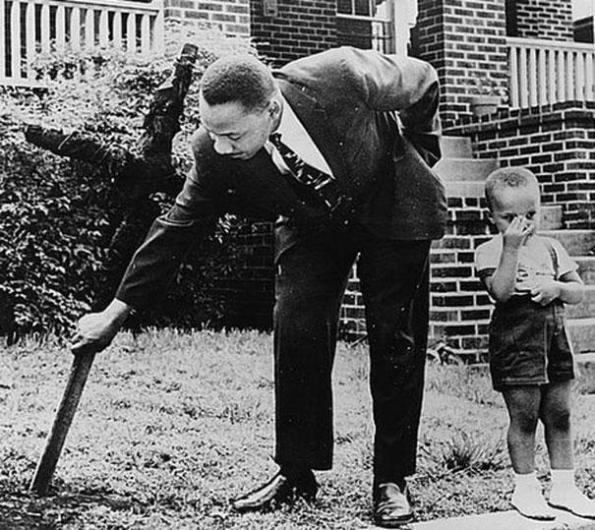A libertarian friend of mine sent me this link – where David Henderson quotes Frederick Douglass.
http://econlog.econlib.org/archives/2014/01/frederick_dougl.html.
“The old doctrine that the slavery of the black, is essential to the freedom of the white race, can maintain itself only in the presence of slavery, where interest and prejudice are the controlling powers, but it stands condemned equally by reason and experience. The statesmanship of to-day condemns and repudiates it as a shallow pretext for oppression. It belongs with the commercial fallacies long ago exposed by Adam Smith. It stands on a level with the contemptible notion that every crumb of bread that goes into another man’s mouth is just so much bread taken from mine. Whereas, the rule is in this country of abundant land, the more mouths you have, the more money you can put into your pocket, the more I can put into mine. As with political economy, so with civil and political rights.”
Henderson then writes
‘This is from the famous abolitionist, Frederick Douglass, November 17, 1864. Douglass is taking on the idea that we are in a zero-sum game. If we were, it would be more understandable why some people would want others enslaved. What Douglass understands is that both sides gain from exchange.”
Comments made following the post point to how it is an argument against white privilege and that “people from different groups stand to gain from interacting with each other in non-coercive and mutually beneficial ways”
WHAT??????
Henderson seems to be missing the point. Douglass is expressing that enslaved blacks do not make Anglo/Europeans richer or more free. That giving enslaved people freedom does not mean that whites will become enslaved or less wealthy and so that it is not a valid pro-slavery argument. Douglass is saying that more freedom for everyone is the result of the end of enslavement. Douglass is arguing that there is no zero-sum game, but the emphasis is on the notion that giving rights and opportunity for economic prosperity to blacks does not mean that whites will lose their rights or opportunity.
One can argue that enslaved people benefited because more often than not the plantation owners tried to keep them alive with the bare necessities for living water, food, and shelter. However, there is a real problem with this arrangement in that it is coercive. Watch 12 years a slave to get some idea, or read Douglass himself for his accounts of being enslaved. The first generation of West and Central Africans who started to arrive in 1618 were stolen from their home and sold like animals, which hardly seems like a good development for them.
Even if you want to argue that it is mutually beneficial, there is certainly a problem of who is benefiting the most and in what ways. It is not difficult to see who benefited the most, the Anglo/European plantation owners, and by vast amounts. This is the root of white privilege and a major obstacle in the way of race relations today. White people often do not recognize just how much of a benefit it is to be “white.” [Just look at the statistics concerning incarcerated men. The majority of men in prison are black, and not because they commit more crime. Rather black men targeted via racial profiling which means that white criminals tend to remain under the radar as well as often having better access to legal defense.]
One interesting take on this situation comes from Fanon and the notion of the master/slave relationship as a mutually constructive operation which is damaging to both parties. The slave is defined by the master and at the same time the master is defined by the slave. Fanon emphasizes in his work that both parties in the relationship suffer more than gain. Those who enslave lose part of their humanity. Those who restrict others freedom restrict their own freedom.
All in all, Douglass does use what could be considered Libertarian arguments for the abolition of slavery. I think it is unfortunate that Douglass seems to be employed to support the idea that there is no white privilege and that enslaved people benefited from their captivity. I do not think this use of Douglass is in the spirit of Libertarianism.
